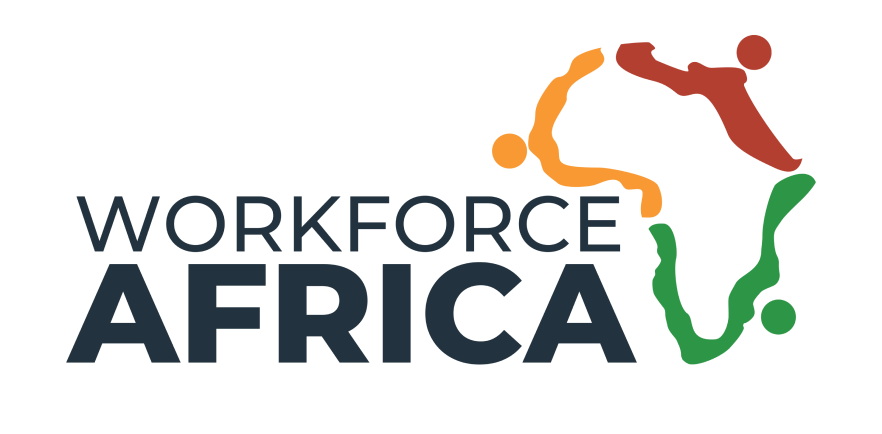As the opportunities in Africa continue to multiply, organisations are now increasingly curious about their chances on the continent, with some already committing resources to establishing a foothold therein.
Already, the FDI inflows into Africa reached a new high of $83billion in 2021. It is no wonder that some experts have dubbed Africa the biggest growth market of the 21st century.
So how can your organisation take advantage of the great African opportunity?
Well, traditionally, expansion into Africa or any other continent for that matter, will usually involve establishing a foreign subsidiary OR a branch office.
However, these days, depending on your business context, there is a simpler, easier and more cost-effective solution you can leverage to quickly hire, onboard and manage talent as well as test new markets.
But first, let’s weigh our options to see what might work best for our unique situation.
We’ll be going over >>
- Foreign Subsidiaries – Definition, Pros, Cons
- Branch Offices – Definition, Pros, Cons
- The new alternative that would suit your business context.
What Is a Foreign Subsidiary?

Foreign subsidiaries are companies majorly owned or controlled by a larger company in another country. And because these subsidiaries are regarded as legally distinct from the parent company, they are thus referred to as local entities / local subsidiaries / foreign subsidiaries.
You may have noticed the “parent company” mentioned above. This is one of several terms used to describe and understand the relationship between all entities involved.
Let’s describe some of them:
Parent Company → Company with majority ownership and/or control of the foreign subsidiaries. [Most likely your organisation if you choose this route].
Daughter Company → aka the Foreign Subsidiary.
Holding Company → A Parent Company that chooses to ONLY hold shares in foreign entities and does nothing else.
Wholly-owned subsidiary. → A daughter company whose parent owns 100% of its shares.
Associate or Affiliate company → A daughter company whose parent owns parent company owns less than 50% of its shares.
Corporate Group → All companies related by control or ownership: Parent Company + Daughter Company(ies) + Holding Company.
Tax Issues
Since Foreign Subsidiaries are regarded as legally distinct, they file and pay their taxes to the governments of the countries where they are located.
However, Parent Companies can choose to file tax returns with other companies in its Corporate Group if it owns a majority share of at least 80% of a foreign subsidiary’s shareholding rights.
Also, local subsidiaries neither owe taxes to the country of their parent company nor are they taxed for profits made by their parent company.
Examples of Foreign Subsidiaries in Africa
Common Foreign Subsidiaries include >>
- Airtel Africa is present in 14 African countries as subsidiaries and is owned by Bharti Airtel, with headquarters in India.
- Lafarge Africa Plc. Majorly owned by Holcim Group, a Swiss multinational company.
- ExxonMobil Nigeria is owned by the parent and multinational Oil and Gas corporation – ExxonMobil, headquartered in Texas, United States.
What Are Branch Offices?
Branch offices are an extension of a major company and, as a result, not a separate legal entity, unlike a foreign subsidiary. And even while a foreign branch may engage in business activities, they are still wholly owned by a parent organisation.
To set up a branch office, you’d need to secure an office space as well as make hires (usually as contractors) OR move existing employees to the new branch.
Beyond these, there are more differences which dictate why an organisation may choose to favour one over the other. These include >>
Foreign subsidiary vs branch office
| Foreign Subsidiary | Branch Office | |
| Legal status | Distinct from the parent company | An extension of the parent company |
| New location set up
requirements |
Transfer share capital, register trade and business licenses, create separate bank accounts, get space, hire new employees etc. | Get office space and move employees / hire contractors as staff. |
| Authority | Voting to decide shareholders. | Corporate management has significant and direct control. |
| Staffing | Can hire local employees | Can only hire independent contractors OR move staff (ex-pats) from the parent’s country. |
| Taxation | Tax is mandated once, subject to the countries where they are located. | It may be subject to double taxation. |
Simplify expansion across Africa’s markets
Advantages of Setting Up Foreign Subsidiaries
-
Access new markets and employment opportunities
A foreign subsidiary allows the parent company to bring new products and services to big markets internationally. It also helps organisations recruit full-time talent without using a go-between.
-
Boost authority in new markets
Local businesses and governments likely take companies that launch subsidiaries in a particular country more seriously. As a result, local organisations will do business with daughter companies registered locally, with legal and fiscal assets in the country where it is doing business.
-
More affordable options for manufacturing
In specific markets, setting up a foreign subsidiary can give you access to lower costs for goods and labour.
Many overseas markets also have a highly developed manufacturing infrastructure that enables lower materials costs and lowers costs to produce goods in bulk, which can help you minimise overall production costs.
-
Streamlined processes and incentives
Some countries openly welcome foreign investment and simplify the process of incorporating a company. They may even provide incentives to encourage foreign investment.
-
Access to local knowledge
Establishing local subsidiaries allows businesses to hire employees with excellent knowledge of the local market and business opportunities. It also eases relationships and partnerships with local companies and takes advantage of their networks and expertise.
-
Hiring local talent
Gaining access to local talent and their technical skills is another advantage of establishing foreign subsidiaries. And allowing establishing a registered presence in these countries will enable organisations to benefit from the local talent pool.
Disadvantages of Setting Up Foreign Subsidiaries

-
High set-up costs
Cost requirements for setting up entities can be prohibitive and will often require a considerable initial investment in time and resources. Everything from obtaining licensees to setting up a space, moving and lodging your employees or hiring contractors, etc., gives a glimpse of how much investment could go into a local subsidiary.
In addition, statutory regulations in some countries could mandate Parent Companies to attend meetings — physically and more, further driving set-up costs.
-
Complex exit requirements
Leaving geographical entities where you established a local subsidiary can also be complex and costly, as statutory filing fees can last months. In some countries, it takes greater than six months to complete an exit process.
-
Cultural differences
The cultural backgrounds of employees from the parent company could be a barrier to communication, trust and satisfactory working conditions.
-
Compliance issues
Setting up in a new country requires a plan to manage legal, political, and bureaucratic issues. Otherwise, the local subsidiaries may fall prey to newcomer risks that could jeopardise business initiatives.
Expand Into Africa With Ease
You can maintain the benefits of setting up local subsidiaries — to experience new markets whilst containing the risks of the same. And that’s by hiring foreign independent contractors whilst operating through an Employer of Record like Workforce Africa.
Workforce Africa helps you to hire, support, manage and pay contractors anywhere in Africa whilst maintaining compliance. We handle everything from contracts to tax forms, payments, benefits and more.
Our employer of record services takes on all the legal and HR responsibilities wherever you set up a local subsidiary in Africa.








